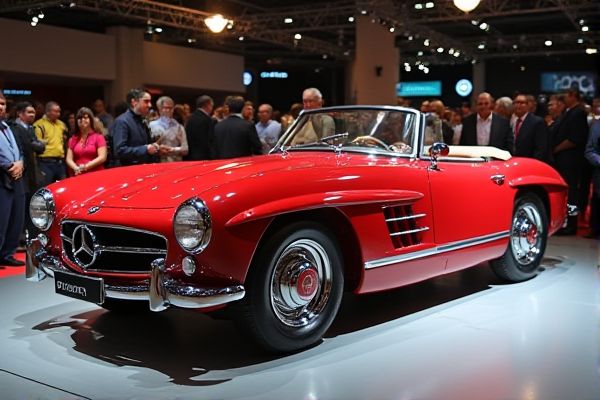
The first car brand in India was Tata Motors, established in 1945. Tata Motors is a subsidiary of the Tata Group and has played a significant role in the Indian automotive industry. A historic moment for the company came in 1998 when it launched the Tata Indica, the first passenger car designed and produced entirely in India. Your understanding of India's automotive history is incomplete without recognizing Tata Motors' contributions.
Brands to consider
Tata Motors
Tata Motors offers a diverse range of affordable and reliable vehicles, making it a popular choice for first-time car buyers in India. Known for their robust build quality and safety features, Tata cars like the Tata Nexon and Tata Tiago have received favorable reviews for performance and fuel efficiency. The brand emphasizes affordability without compromising on technology, incorporating features like touchscreen infotainment systems and smart connectivity options. With an extensive service network across the country, Tata Motors ensures easy access to maintenance and support for your vehicle.
Maruti Suzuki
Maruti Suzuki is a prominent choice for first-time car buyers in India due to its extensive service network, ensuring easy access to maintenance and repairs. The brand offers a range of budget-friendly models like the Maruti Suzuki Alto and Swift, which are known for their fuel efficiency and reliability. Safety features in newer models have improved significantly, complying with stringent regulations. The resale value of Maruti Suzuki vehicles tends to be high, making them a practical investment for first-time buyers. Your decision to choose Maruti Suzuki could also benefit from the brand's reputation for customer satisfaction and long-lasting performance.
Mahindra & Mahindra
Mahindra & Mahindra has a strong legacy in the Indian automotive sector, being one of the first companies to manufacture cars in India. Known for their robust performance and durability, Mahindra vehicles, particularly the Mahindra Thar and XUV series, cater to diverse consumer needs. Their commitment to innovation is evident with the introduction of electric vehicles like the Mahindra eVerito, reflecting a focus on sustainability. With a widespread service network and affordable maintenance, Mahindra & Mahindra ensures convenience for first-time car buyers in India.
Hindustan Motors
Hindustan Motors established itself as a pioneering automobile manufacturer in India, known for models like the iconic Ambassador. With a rich legacy that dates back to 1942, it played a significant role in shaping India's automotive landscape. The brand is recognized for its sturdy and reliable vehicles that cater to a diverse range of consumers, making it a preferred choice for many first-time car buyers. Your decision to explore Hindustan Motors can lead you to a classic experience in Indian automotive history, reflecting the growth and evolution of the country's car market.
Ashok Leyland
Ashok Leyland is recognized as a prominent commercial vehicle manufacturer in India, known for its reliability and innovation in the automotive sector. With a history stretching over seven decades, the brand has established a solid reputation for durable and efficient vehicles, catering to various segments, including heavy trucks, buses, and light commercial vehicles. Their focus on eco-friendly technologies, such as BS6 compliant engines, aligns with contemporary environmental standards. For individuals seeking a dependable first car brand in India, Ashok Leyland's legacy and commitment to quality offer a reliable choice for transportation needs.
Inception Year
The first car brand in India, Tata Motors, was established in 1945 and began manufacturing vehicles in 1954. Tata Motors has since grown to become one of the largest automotive manufacturers in the country, producing a diverse range of vehicles from passenger cars to commercial trucks. This brand plays a significant role in the Indian automotive industry, contributing to its evolution and innovation. You can explore the history and impact of Tata Motors on India's economy and infrastructure.
Founding Location
The first car brand in India, Tata Motors, was established in 1945. Its founding location is in Mumbai, Maharashtra. Tata Motors has since played a significant role in the automotive industry, producing a wide range of vehicles including passenger cars, trucks, and buses. The company is a part of the Tata Group, which is one of India's largest and oldest conglomerates. Your interest in automotive history can lead you to explore the evolution of the Indian car market.
Partnership and Collaborations
Partnerships and collaborations play a significant role in the success of the first car brand in India, Tata Motors. By teaming up with technology firms, Tata Motors enhances vehicle innovation and connectivity features. Collaborations with local suppliers ensure a streamlined supply chain, while partnerships with research institutions foster advancements in sustainable automotive technologies. Engaging with global manufacturers can also bring in expertise in electric vehicle development, aligning with the broader industry trends. Your strategic alliances can influence market penetration and brand reputation significantly.
Key Milestone Models
The first car brand in India, Tata Motors, has achieved several key milestones since its inception. Its launch of the Tata Nano in 2008 marked a significant entry into the compact car market, positioned as the world's cheapest car. In 2017, Tata Motors introduced the Nexon, a compact SUV that garnered attention for its design and safety features. The company has also made strides in electric vehicles with the Tata Nexon EV, reflecting a shift towards sustainable mobility. Your interest in Tata Motors' journey highlights important developments in the Indian automotive industry.
Market Expansion Strategies
Market expansion strategies for the first car brand in India may include localized manufacturing to reduce costs and enhance supply chain efficiency. Collaborating with established local dealerships can facilitate customer engagement and brand visibility. Implementing targeted marketing campaigns that resonate with regional preferences will strengthen brand awareness. Leveraging technological advancements through electric vehicle (EV) offerings can attract environmentally-conscious consumers. Engaging in partnerships with ride-sharing services like Ola can also promote brand utilization and exposure.
 indiabrand.org
indiabrand.org